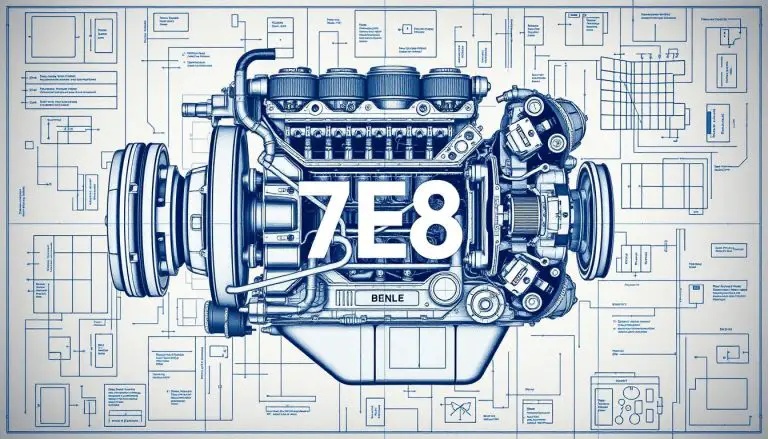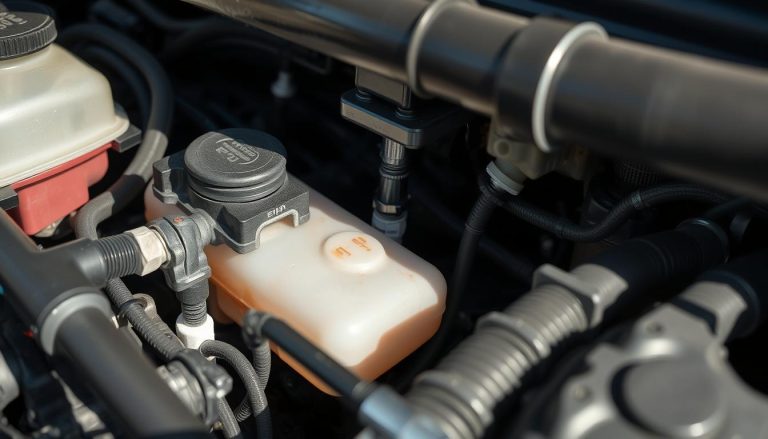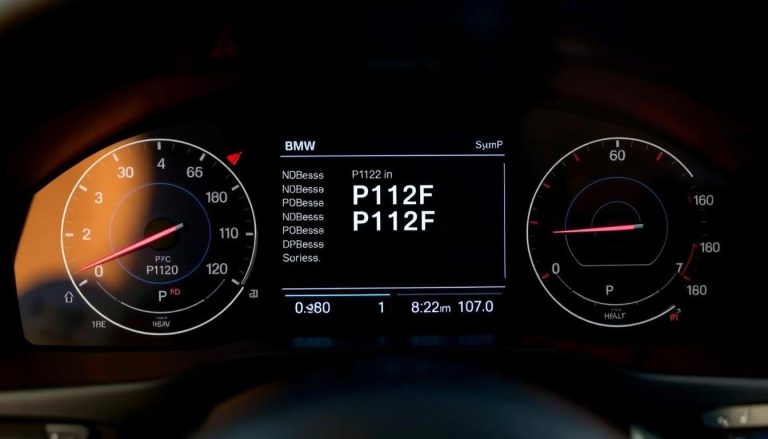This trouble code is linked to the turbocharger or supercharger boost control system, and understanding its implications is crucial for every car owner. Whether you’re a seasoned mechanic or just someone who loves their vehicle, grasping what this code means will empower you to tackle potential issues head-on.
In this article, we’ll dive deep into the causes and symptoms of the P0045 code. We’ll guide you through diagnostics and repair solutions while also discussing how serious this issue really is.
What does the P0045 code mean?
The P0045 code is a diagnostic trouble code (DTC) that indicates an issue with the turbocharger or supercharger boost control system. Specifically, it signifies an open circuit in the Boost Control A circuit. This means there’s a disruption in communication between critical components.
Turbochargers and superchargers play essential roles in enhancing engine performance by increasing air intake pressure. When the P0045 code activates, it suggests that something isn’t functioning correctly within this system.
This malfunction may lead to reduced engine power, efficiency issues, or even increased emissions. Addressing this warning promptly can prevent further complications down the road and ensure your vehicle runs at its best. Understanding what this code entails sets you up for successful troubleshooting and repair efforts.
What are the possible causes of a P0045 code?
The P0045 code can arise from various underlying issues. One primary culprit is a malfunctioning turbocharger or supercharger. Damage to these components can disrupt the boost control circuit.
Wiring problems also play a significant role in triggering this code. Frayed wires, poor connections, or corrosion can hinder communication within the system.
Additionally, a faulty boost pressure sensor may lead to inaccurate readings, which the engine control module interprets as an issue with boost control.
A damaged actuator that controls the wastegate could contribute too, causing incorrect pressure management.
Vacuum leaks create imbalances in airflow and affect performance significantly. Each of these factors has its own implications for vehicle operation and efficiency.
What are the common symptoms of a P0045 code?
A P0045 code can manifest in various ways, often signaling issues with your turbocharger or supercharger. One of the first symptoms you might notice is a significant drop in engine performance. Acceleration may feel sluggish and unresponsive.
You may also experience an illuminated check engine light on your dashboard. This warning could be accompanied by other error codes related to boost control systems.
Strange noises from the engine bay are another common symptom. Whining or hissing sounds can indicate air leaks in the system, which can directly affect performance.
Additionally, fuel efficiency may take a hit. If you’re suddenly filling up more frequently without any changes to driving habits, it’s worth investigating further.
Pay attention to how your vehicle behaves; these signs are crucial for identifying potential problems early on.
What are the diagnostic steps for a P0045 code?
When diagnosing a P0045 code, the first step is to use an OBD-II scanner. This tool helps confirm the presence of the code and identifies any additional trouble codes that may be stored.
Next, visually inspect wiring and connectors related to the turbocharger or supercharger boost control system. Look for signs of damage, corrosion, or loose connections.
After that, test the electrical circuits using a multimeter. Check for continuity in wires and ensure voltage levels are within specifications.
You should also verify sensor operation by monitoring data through your scanner while driving. This will highlight any irregularities in boost pressure readings.
Consider checking mechanical components like wastegates or bypass valves for proper functionality. A thorough examination can reveal underlying issues contributing to the P0045 code.
How serious Is the P0045 Code? Can I continue driving with the P0045 code?
The P0045 code indicates a problem with the turbocharger or supercharger boost control circuit. When this code triggers, it’s important to take it seriously.
Driving with a P0045 code can lead to reduced engine performance. You may notice sluggish acceleration or difficulty maintaining speed. These symptoms can affect your driving experience significantly.
Furthermore, continued operation of your vehicle under these conditions could potentially cause further damage to the turbocharger or other engine components. Ignoring the issue might result in costly repairs down the line.
It’s always wise to address any warning codes promptly. While you might drive short distances without immediate consequences, long-term neglect is not advisable for vehicle health and safety. Prioritizing diagnostics will save you headaches later on.
What are the repair solutions for a P0045 – Turbocharger/Supercharger Boost Control A Circuit/Open ?
Repairing a P0045 code involves several targeted solutions. First, it’s essential to inspect the wiring and connectors related to the turbocharger or supercharger boost control system. Loose connections or damaged wires are common culprits.
If the wiring appears intact, the next step is testing the boost control solenoid itself. A faulty solenoid can disrupt proper operation, leading to this trouble code.
In some cases, checking for vacuum leaks in hoses associated with the turbo/supercharger system may be necessary. Leaks can significantly affect performance and trigger error codes.
After addressing any electrical issues or component failures, clearing the fault codes and taking your vehicle for a test drive will help ensure everything functions as intended. If problems persist after these steps, further diagnostics might be needed to pinpoint underlying issues within other components of the engine management system.
How long and How much does it cost to diagnose and repair a P0045 code?
The cost to diagnose a P0045 code typically ranges from $75 to $150. This depends on the shop’s hourly rate and the complexity of the diagnostic process.
Repair costs can vary widely, often falling between $100 and $1,500. Factors influencing this range include whether you need repairs or replacements for parts like wiring harnesses or turbochargers.
Labor time is another consideration. A straightforward fix may take just an hour, while more complex issues could require several hours in the shop.
Always seek multiple estimates before committing to repairs. Transparency about what work is needed can help ensure you’re getting a fair deal without hidden fees.
How can I avoid a P0045 code?
Regular maintenance is key to avoiding a P0045 code. Always follow the manufacturer’s service schedule for your vehicle. This includes checking and replacing fluids, filters, and spark plugs as needed.
Keep an eye on your turbocharger or supercharger system. Listen for unusual noises that may indicate wear or damage. Visual inspections can help catch issues early before they escalate into serious problems.
Using high-quality fuel can also make a difference. Poor fuel quality might affect engine performance and could trigger various error codes, including P0045.
Additionally, pay attention to any warning lights on your dashboard. Ignoring them can lead to more significant issues down the line.
Consider investing in diagnostic tools or software designed to monitor engine health regularly. Staying proactive helps ensure you enjoy smooth driving without unexpected surprises related to boost control circuits.
What happens if you ignore a P0045 code?
Ignoring a P0045 code can lead to several complications. When this code triggers, it indicates an issue with the turbocharger or supercharger boost control circuit. Over time, this problem can escalate.
You may experience poor engine performance. The vehicle might struggle during acceleration or show reduced power output. This not only affects your driving experience but could also impact fuel efficiency.
Additionally, neglecting the warning can result in more severe engine damage. The turbocharger relies on precise control for optimal function. If left unchecked, you risk costly repairs down the line.
There’s also potential for increased emissions due to improper air-fuel mixture management. This could turn into a compliance issue if your region mandates emissions testing.
Addressing a P0045 code sooner rather than later is advisable to maintain both performance and safety on the road.
Is the P0045 code specific to certain car makes or models?
The P0045 code is not limited to a specific make or model of vehicle. It can be found across a wide range of manufacturers, reflecting its connection to turbocharger and supercharger systems.
Typically, this code appears in vehicles equipped with forced induction systems. Brands like Ford, Chevrolet, Volkswagen, and Subaru are commonly associated with this issue.
However, the underlying design and technology of each manufacturer’s system mean that symptoms may vary significantly. Some vehicles might exhibit more severe performance impacts due to their reliance on turbocharging for power.
Moreover, understanding manufacturer-specific guidelines is crucial when diagnosing the P0045 code. Each car brand could implement different components or configurations that influence how this code behaves in practice.
What other codes may be related to P0045?
When dealing with the P0045 code, it’s essential to be aware of other diagnostic trouble codes that may appear in conjunction. These related codes can provide additional insights into broader issues affecting your vehicle’s performance.
Codes such as P0034, which indicates a turbocharger or supercharger “B” circuit malfunction, and P0234, signaling an overboost condition, are common companions to the P0045 code. Additionally, you might encounter codes like P0299 for underboost conditions or even more general ones like P0101 and P0102, which refer to mass air flow sensor performance.
Understanding these related codes can help technicians pinpoint exactly what is going wrong with the boost control system. Addressing them collectively often leads to a more effective repair strategy and ensures your vehicle runs smoothly again.
Being proactive about monitoring these codes can save time and money down the line by tackling all potential issues at once rather than piecemeal fixes that may overlook underlying problems. Staying informed will keep your car operating efficiently while enhancing its longevity on the road.


